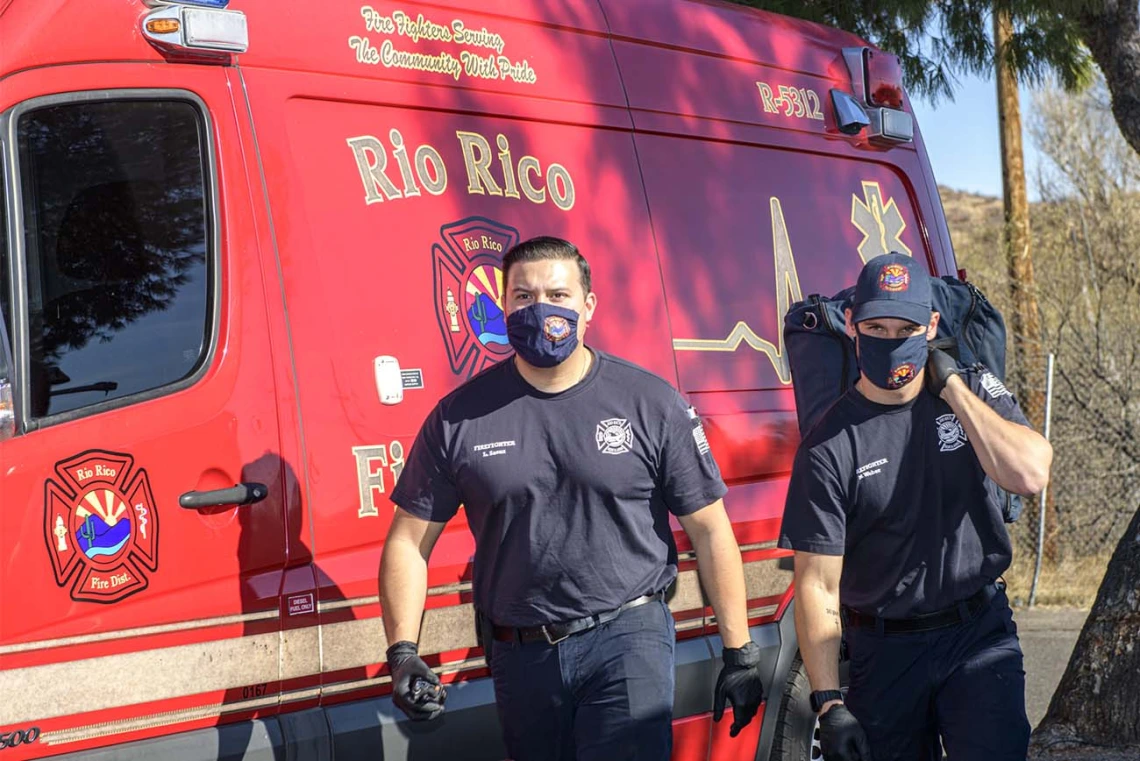AZ HEROES COVID-19 Immunity Study Expanding Efforts to Enroll Spanish-speaking Participants
A dedicated campaign to include an underrepresented group in the AZ HEROES study is expected to produce more meaningful results.

By expanding efforts to include more Spanish-speaking participants in the study, researchers will be able to better investigate whether vaccine effectiveness among essential workers and college students is modified by socio-demographic characteristics, occupation or health status.
A University of Arizona Health Sciences study that is examining COVID-19 immunity, re-infection and vaccine effectiveness is expanding its efforts to include Spanish-speaking essential workers and college students in Arizona. The study, which launched last year in the midst of the pandemic, is known as the Arizona Healthcare, Emergency Response and Other Essential Workers Surveillance (AZ HEROES) study.
“Including Spanish-speakers in the AZ HEROES study is important to capture a significant demographic group in Arizona that has often been excluded from research opportunities due to a language barrier,” said Jeff Burgess, MD, MPH, MS, the study’s principal investigator and a professor and associate dean for research at the UArizona Mel and Enid Zuckerman College of Public Health. “Ensuring more participation among this underrepresented group, a community that also is being disproportionately affected by the pandemic, will give us a more accurate sample of the overall population and result in more robust research that will help bring this pandemic to an end.”
By expanding efforts to include more Spanish-speaking participants in the study, researchers will be able to better investigate whether vaccine effectiveness among essential workers and college students is modified by socio-demographic characteristics, occupation or health status, as well as by attitudes or practices related to the COVID-19 vaccines.
The team also will investigate the impact of those factors on subsequent vaccination behaviors, including vaccine refusal, hesitancy or incomplete adherence to vaccination recommendations.
According to the Arizona Department of Health Services, only 11% of Arizonans who have received at least one dose of a COVID-19 vaccine are Hispanic, even though Hispanics comprise 31% of the state’s population, 30% of the state’s COVID-19 cases and 29% of the state’s COVID-19 deaths.
Spanish-speaking essential workers and college students can sign up for the study on the AZ HEROES website: https://azheroes.arizona.edu/join-az-heroes
In addition to Dr. Burgess, the AZ HEROES research team includes: Bonnie LaFleur, PhD, MPH, a research professor of biostatistics and member of the BIO5 Institute; Janko Nikolich-Zugich, MD, PhD, head of the College of Medicine – Tucson’s Department of Immunobiology, co-director of the Center on Aging and member of the BIO5 Institute, Karen Lutrick, PhD, assistant professor in the Department of Family and Community Medicine at the College of Medicine – Tucson, and Kate Ellingson, PhD, assistant professor, and Joe Gerald, MD, PhD, associate professor, in the Zuckerman College of Public Health.
To learn more about the study please visit the AZ HEROES website: https://azheroes.arizona.edu/
Contact
Shipherd Reed
520-626-9669
shipherd@arizona.edu

